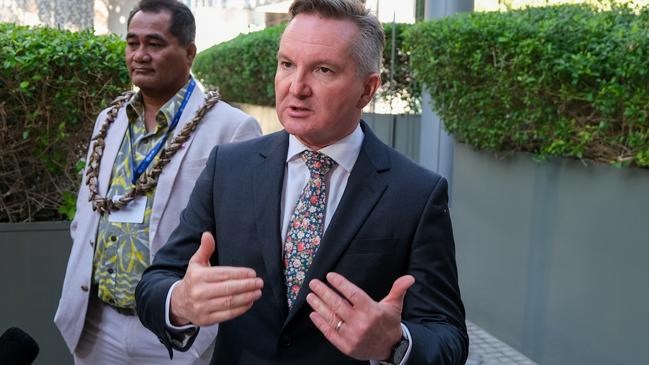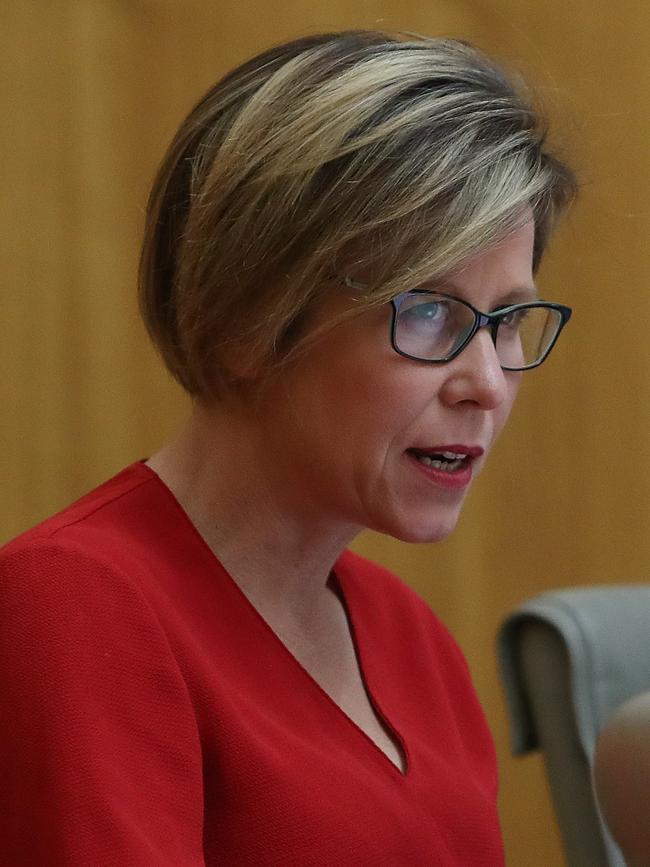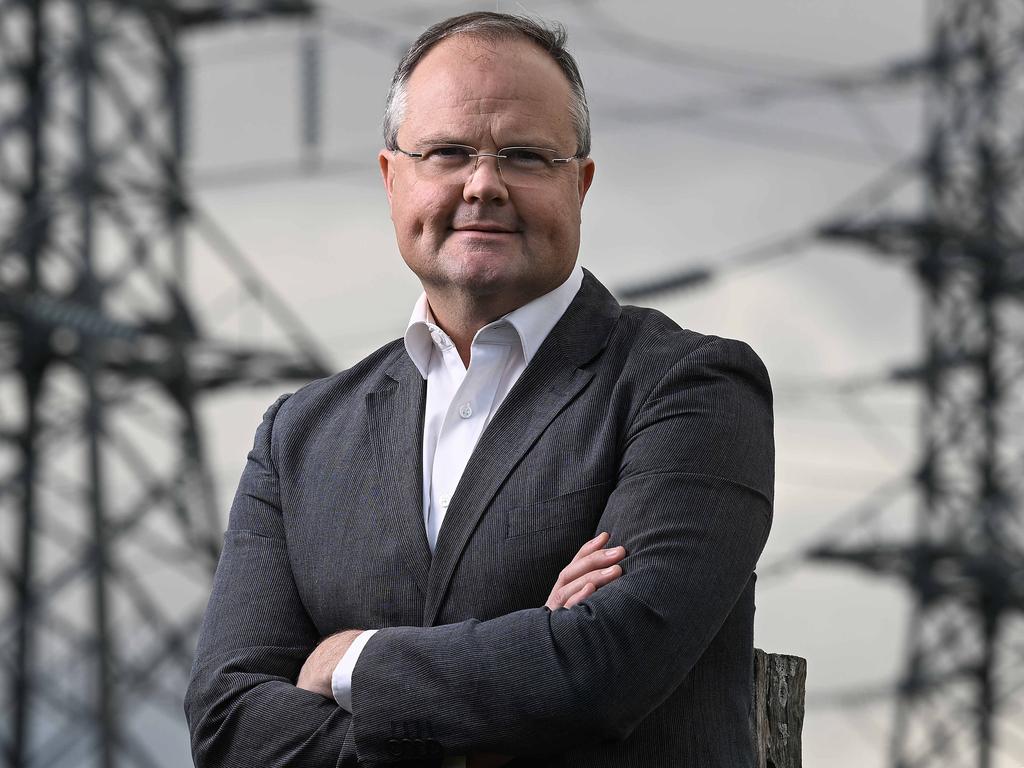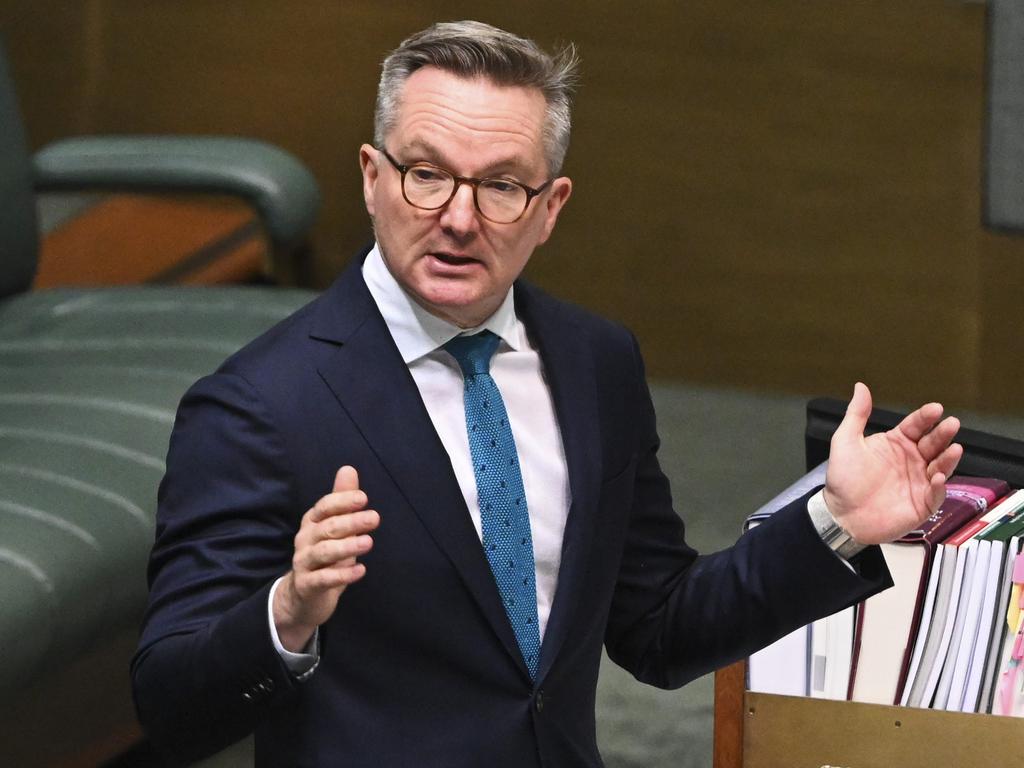Samoa urges Bowen to support phasing out of fossil fuels
A key Pacific Island powerbroker has urged Chris Bowen to support the urgent phasing out of fossil fuels.

Climate Change and Energy Minister Chris Bowen says he is “quietly confident” about achieving Australia’s position on fossil fuels, which could involve taking stronger action on domestic fossil fuel subsidies and production.
The assurance came as a key Pacific Island powerbroker, Samoa’s Environment Minister Toeolesulusulu Cedric Schuster, urged him to support urgent phasing out of fossil fuels.
Mr Bowen has previously said it would be inevitable to phase down fossil fuels, but has not fully articulated Australia’s time line or the scope of its ambition - which is the cornerstone of this Dubai COP28. “We can’t wait domestically, we can’t wait internationally,” he said.
Mr Bowen said the “unsurprising” European Union report showing 2023 would be the hottest on record “underpins the need for more action and more action domestically”.
He added: “You know, people wander around in federal parliament saying, ‘we can wait till 2050’ or ‘we can pause’. That’s the exact language these people use, as if the last 10 years weren’t close enough, you know, saying we need a pause, and we can wait to 2050. Now, we cannot. We can’t wait domestically, we can’t wait internationally.”
On Friday, on the eve of discussions with like-minded countries including the US, Mr Bowen was urged by the chair of the Alliance of Small Island States, Mr Schuster, to take the strongest possible stance about the phase out of fossil fuels.
Mr Schuster said countries had to “stop feeding the beast” and told Mr Bowen he expected Australia to take the strongest stance not just on fossil fuels, but also on emissions reductions to hold temperature rise to 1.5 degrees above pre-industrial levels.
Mr Bowen was coy about just how “strong” Australia’s line would be.
“I want, in terms of phasing out fossil fuels, of course, I want to see a big step forward there at this COP,” he said. “And I’m actively participating in those discussions … Whether we get there or not, coming days will tell. But it is important, it sends an important symbol.”
Mr Bowen said the discussions could not focus on fossil fuels without the other side of the equation – getting to 82 per cent renewables, with clean energy to replace fossil fuels as they leave the grid.
Mr Bowen announced on Friday Australia’s contribution to the Pacific Resilience Fund of $100m and another $50m for the Green Climate Fund.
Australia’s assistant climate minister, Senator Jenny McAllister, said her experience from Australia – “a country which keenly understands droughts, bushfires and floods’’ – would help her negotiate with political leaders to bring about a consensus on the issue of adaptation at the COP28 in the coming days.
Senator McAllister has been paired with the Chilean Environment Minister and climate scientist Maisa Rojas to spot the political challenges over the next few days in regards to adaptation – which is helping countries around the world build, develop and plan for climate changes – and encourage a view acceptable to the 198 countries.

Senator McAllister told the COP28 attendees that “every tenth degree of warming of the planet makes adaptation to the conditions much harder”.
Senator McAllister said she would be listening to the parties and working to a consensus so that a framework is agreed about building reliance as well as encouraging ambitious actions to reduce emissions.
The adaptation issue has been overshadowed by other aspects of the COP28, particularly the wording on phasing out or phasing down of fossil fuels, and a framework for the ongoing political discussions regarding adaption is still being drafted.
COP28 president Sultan al-Jaber told Senator McAllister and the other ministerial pairs to “spend every moment facilitating and supporting the most ambitious outcome,”, saying the new spirit generated here would make this particular COP “transformational”.






To join the conversation, please log in. Don't have an account? Register
Join the conversation, you are commenting as Logout